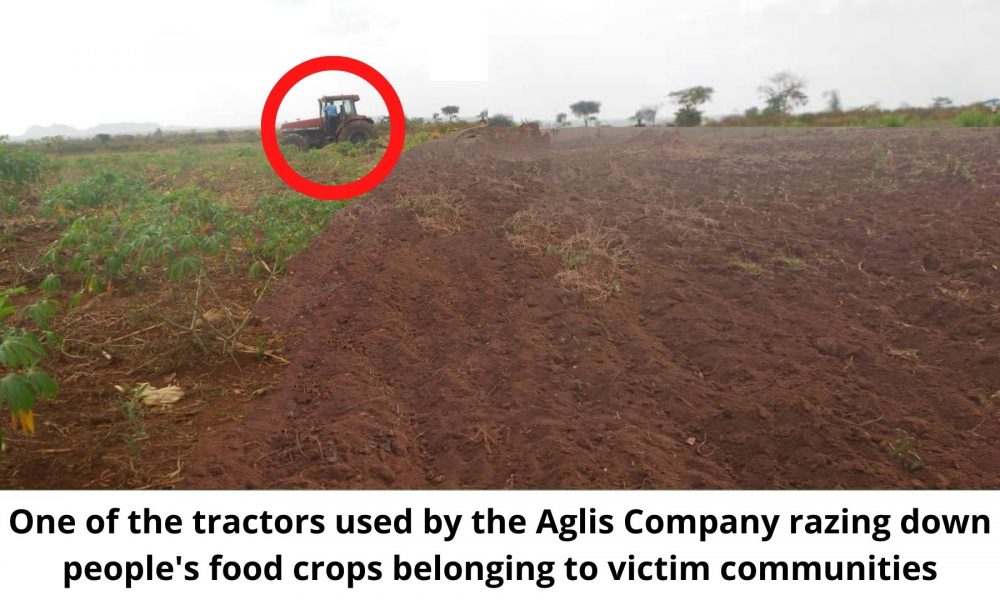DEFENDING LAND AND ENVIRONMENTAL RIGHTS
Masindi high court finally fixes court dates for Kiryandongo land grab victims
Published
3 years agoon
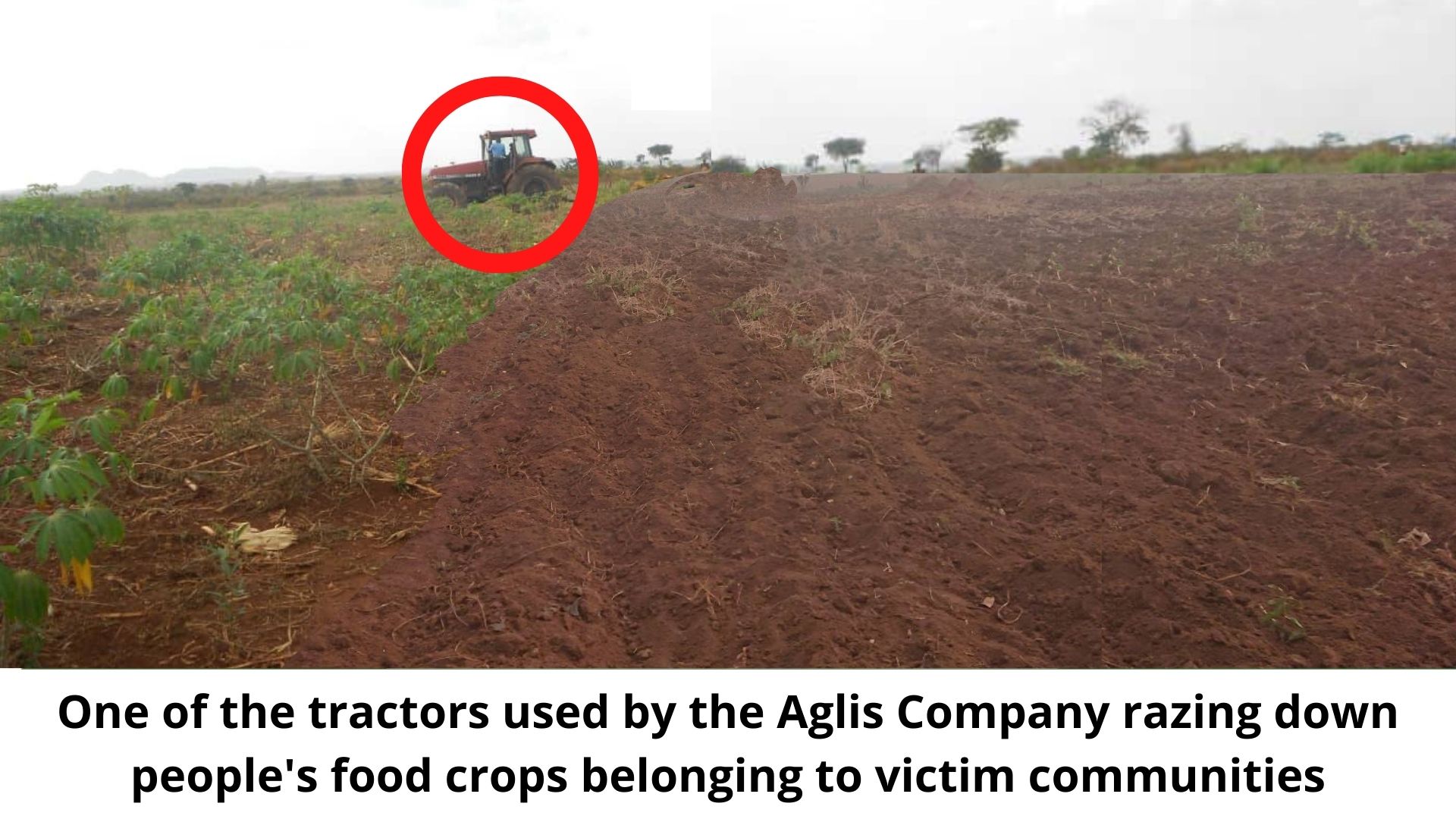
In 2017, all hell broke loose when thousands of families in Kiryandongo district, Western Uganda started fleeing their homes for their dear lives. The move was triggered by the unabated brutal and forceful evictions orchestrated by multinational companies who acquired the interests in the said land for large-scale agriculture.
The eviction had far-reaching consequences on the community. It left broken homes and shattered dreams. Rape and defilement were among the underhand tools employed to break the resistance put up by the smallholder farmers. At all times, arrests, detentions and prosecution defined and still define the relationship between the evicted community and the multinational companies. Not even their lawyers were spared; they too were arrested and detained.
On 30th June 2020 in Busaana-Kimogola village, Kakooko parish, Mutunda Sub County, the Uganda Police Force (UPF) arrested seven lawyers and 6 land rights defenders while collecting evidence to support ongoing human rights enforcement cases against the multinationals: Kiryandongo Sugar limited, Agilis Partners Limited, and Great Seasons SMC Limited. The brutal and chilling accounts of the state’s excesses against its own citizens were detailed in a report, “Land Grabs at Gunpoint” by AFSA, GRAIN and Witness Radio – Uganda.
“UPDF Soldiers and police officers under the command of the former Kiryandongo District Police Commander Mr. Joseph Bakaleke and his predecessors. They caught us unaware and nobody expected this. We had never been consulted nor compensated. The area was cut off right from the main road and no car would access the eviction premises. No media or human rights defenders were allowed to access the entire villages. The inhuman actions were devastating”. said Joseph Walekula, one of the victims.
Despite a shocking report by three civil societies that revealed gross human rights abuses and violations in Kiryandongo by multinationals, the companies continue to violate the rights of the evictees unabated.
According to the report, more than 35,000 have been evicted by the companies. However, rights activists and land rights defenders claim the numbers are increasing due to the unending evictions. The 2020 report called for independent investigations into the matter and compensation for the affected families. To date, the demands have not been addressed!
But the shocking revelations persist. On 28th February, three armed Field Force Unit officers guarding Agilis partners plantations, led by Byaruhanga Francis, attacked 20-year old Talemwa Eliot in the wee hours of the morning and ordered him to vacate his land. He says he was questioned why he is still living in the company land.
“They came at around 2:00 am, they banged on my door and threatened to set it on fire if I do not open or come out. I opened it but they were armed with a gun and big sticks. I think they wanted to take my life. It was terrible. I had to fight one who had a stick and then ran. I managed to escape but still, they ran over me and hit me with a big stick,” Talemwa added.
He added that all his belongings including 200,000 Ugandan shillings (USD56.7) were taken, and mattresses, clothes, and other household items were thrown outside.
“They failed to catch me and decided to come back for my property at home. I found all of them out while the money had been taken.” he further said in an interview.
The attack on Talemwa happened barely 10 hours after terrible violence was committed at his parent’s home.
According to eyewitnesses, Mr. William Katusime and Namuganza Esther, both parents to Talemwa were violently evicted from their land by a group of 18 people consisting of 8 armed policemen, 7 security guards, and 3 soldiers. Their cassava plantation of 4 acres was destroyed.
“They came with a tractor registration number UAR 643K at around 4:45 pm on Saturday and destroyed everything. I had over 150 acres of land.” Katusime narrated.
These and other atrocities committed forced Walekula, Katusime, and other residents affected by the three companies’ forced evictions to petition the High Court of Uganda at Masindi to seek, among others, compensation for the violations of their human rights and the destroyed properties, and to halt the forced evictions.
Witness Radio Uganda through M/s Kiiza and Mugisha Advocates, helped the communities to file the applications seeking justice and and the return of their grabbed lands.
“We cannot sit while the companies are grabbing our land. We have been here for decades. Our families are broken. We are broke. People are dying. We have no food to eat because we are restricted from using our land. This is why we ran to court for our rescue in getting justice,” explains Mr. Otyaluk Ben Wilson, one of the affected residents in Nyamutende.
According to the lawyers, all the cases have been fixed for hearing at the High Court. The Masindi High Court fixed 20th April 2022 for hearing of Miscellaneous cause number 11 of 2020 of Joseph Mangfu and 11 others vs. Agilis Partners, 21st April for hearing case Miscellaneous Cause Number 12 of 2020 of Otyaluk Ben Wilson and 8 others vs. Kiryandongo sugar Company and 30th of May 2022 for hearing the application for Ssebisolo Godfrey, Miscellaneous cause Number 007 of 2020 vs. great seasons SMC limited company.
“This means a lot to us. We are happy for the success we have so far achieved. We thank our representatives for the support,” Joseph said.
Meanwhile, the Kiryandongo women affected by the forced evictions community have written to the US ambassador to Uganda, Ambassador Natalie E Brown, seeking a remedy and redress on the forced, violent, and inhuman evictions orchestrated by the Agilis Company that is funded by the US.
Represented by Akiteng Stella, the affected communities including Kisaranda, Kanani, Gologosa, kololo, Kamison, Kamigora, Techwa, Ndoi, Nyamuntende Sub- Counties: Mutunda and Kitwara claim they have extremely suffered as a result of the company’s excesses.
Residing on Ranch 20/21 in Kiryandongo, the community says their land was forcefully grabbed by the Agilis partners in 2017 and has since evicted them without following the necessary due process.
According to the letter, residents have been greatly disturbed and negatively affected by the projects they established in their community. It reads:
“…First and foremost, the company hires men who come from wherever and these men are busy raping my fellow women and, since most of them are not married, they end up satisfying their sexual [urges] by raping our women thus infecting them with sexually transmitted diseases like HIV/AIDS, Gonorrhea and Syphilis among others. Some of our young girls are raped and they end up becoming pregnant thus being forced to drop out of school.
They demolished our schools, hospitals, churches and destroyed our gardens too so we have no land for farming, and yet agriculture was a source of income.
After evicting us from the land, some of our husbands abandoned us with our children so without land for farming it’s really hard for us to be in a position to sustain our families.
Our water sources like wells were destroyed which has caused water shortage and those that are left are far and the path that leads us to the water sources are inaccessible and are risky because they are surrounded by plantations and the rapists usually use that opportunity to rape our women…”
…We are requesting you to give us audience so that we can air out our issues on how Agilis coming to our community has caused us a lot of suffering as a community, infringed on our human rights, greatly affected our lively hood and increased poverty to mention but a few yet we believe these projects are meant to better our lives. We also request you to carry out investigations on the company whose projects you’re funding because it is not exhibiting American values. Is this company whose employees’ rape and defile American?”
Brief background about the multinational companies.
Agilis partners.
Agilis Partners is owned by twin brothers from the US, Phillip Prinz, and Benjamin Prinz. In 2013 the brothers established Joseph Initiative, a maize trading company that sources from a network of out-grower farmers in Masindi District who were previously doing contract production for British American Tobacco.
The Joseph Initiative has received financial support from several sources. In 2013, it received a US$1.5 million equity investment from the Dutch billionaire De Rijcke family, via its registered charity in the UK, Dutch OakTree Foundation, and DOB Equity (DOB Foundation), a private equity vehicle that manages the “charitable” investments of the De Rijcke family.
In 2017, Dutch Oak Tree sold its minority shares in Joseph Initiative to Agilis Partners but remains involved in the company through a loan that is due in 2022.
In 2013, Joseph Initiative also received a $500,000 loan from the United Nation’s Common Fund for Commodities (CFC), via the Dutch Trust Fund arrangement set up by the Netherlands Ministry for Development Cooperation to support CFC projects with co-financing contributions.10 And in 2014, the UK DFID funded Food Trade program granted Joseph Initiative £981,311(US$1280, 59), under a 3-year project.
Kiryandongo Sugar
Kiryandongo Sugar is owned by members of the powerful Rai family, a Kenyan-based business group that owns numerous plantation, food, metals, and timber companies in east and southern Africa. Over the past decade and a half, the Rai Group has become one of the continent’s largest players in the production and import of sugar. Several of its sugar companies are involved in land conflicts, including the displacement of 5,000 people by Hoima Sugar Limited in Kijayo, Uganda.
Great Seasons SMC Limited
Great Seasons SMC Limited, owned by Sudan’s investor based in Dubai. Company records indicate only that it is owned by one Yasir Adam Ahmedai Abdalla.
Original source: Ugandan Land Defenders Via Farm Land Grab
Related posts:
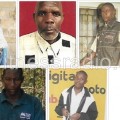
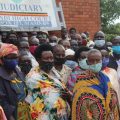 Hundreds of families affected by several dev’t projects in Kiryandongo turn up in big numbers as Masindi High Court attends to their cases filed in 2020.
Hundreds of families affected by several dev’t projects in Kiryandongo turn up in big numbers as Masindi High Court attends to their cases filed in 2020.
 Masindi High Court refuses to block a multi-million agribusiness company from illegally evicting thousands.
Masindi High Court refuses to block a multi-million agribusiness company from illegally evicting thousands.
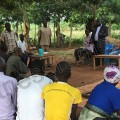 COVID-19 Lockdown: Lawyers demand for court’s immediate intervention into the land grab violence meted out to communities by multinational companies in Kiryandongo
COVID-19 Lockdown: Lawyers demand for court’s immediate intervention into the land grab violence meted out to communities by multinational companies in Kiryandongo
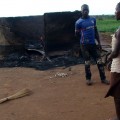 Masindi High Court to rule on an interim application seeking to stop a multi-million agribusiness company from an illegal and forceful eviction.
Masindi High Court to rule on an interim application seeking to stop a multi-million agribusiness company from an illegal and forceful eviction.
You may like
-


Community land rights defenders that have been on trial since 2020; are set to return to court this January.
-


After being tortured by the army, the land rights defender is charged and remanded to prison
-
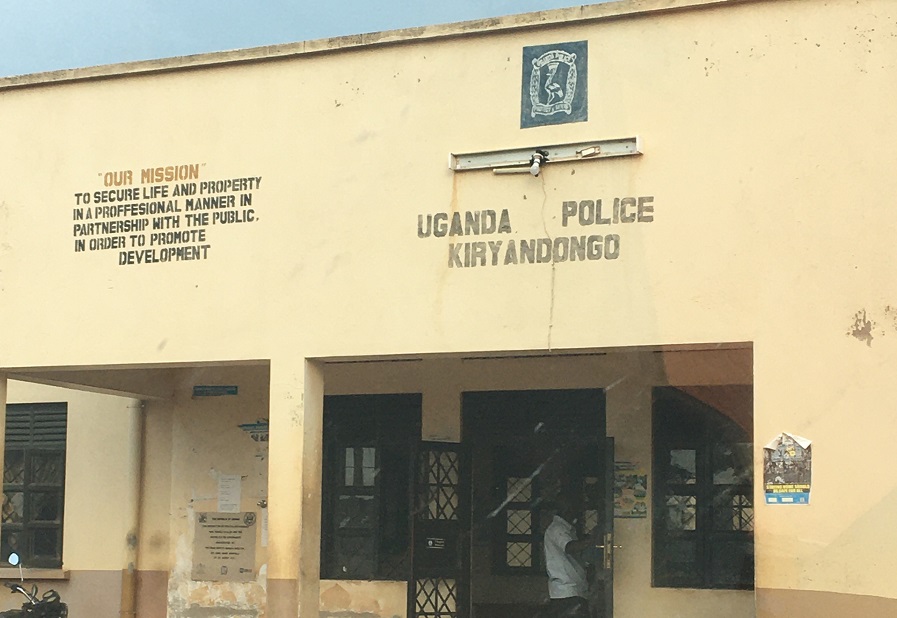

Found! Abducted land rights defender is being held at Kiryandongo district police.
-
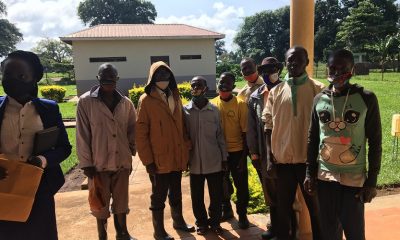

The criminal trial of 8 land rights defenders flops for the fourth time
-
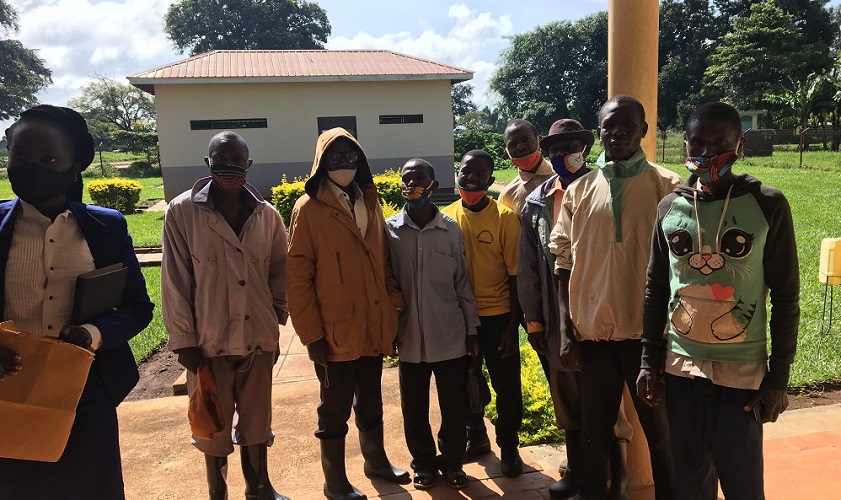

The criminal trial of 8 land rights defenders is set to take off tomorrow
-


The trial of 8 land rights defenders kicks off this Thursday…
DEFENDING LAND AND ENVIRONMENTAL RIGHTS
Crackdown on EACOP protesters intensifies: 35 Activists arrested in just four months.
Published
2 months agoon
April 30, 2025
By Witness Radio team.
Ugandan authorities’ ongoing crackdown on anti-EACOP protest marches is spreading rapidly like wildfires. The East African Crude Oil Pipeline (EACOP) Project, a significant oil infrastructure development, has been a point of contention. Recently, Witness Radio warned that criminalizing the activities of individual activists and environmental defenders opposed to this project, which aims to transport crude oil from Hoima in Uganda to the Port of Tanga in Tanzania, will be regarded as the most disastrous and insensitive to communities’ concerns in Uganda’s history.
In just four months, a series of arrests targeting environmental activists opposing the mega oil project that transports crude oil from Hoima in Uganda to the Port of Tanga in Tanzania has resulted in a scene of crime. No one is allowed to express their concerns peacefully about it and push back on its adverse negative impacts.
While activists view the peaceful marches as a rightful and brave effort to protect the environment and the communities affected by the project, the authorities, including the Uganda police and Prosecutor’s office, regard these actions as attempts to sabotage development projects and resort to criminalization.
Activists and civil society organizations’ reports indicate that the project will likely damage the environment and has displaced thousands of local communities in Uganda and Tanzania.
Despite growing concerns and an intensified crackdown, project financiers and shareholders remain unwavering in supporting the EACOP project. This steadfast support underscores the urgency of the situation. However, environmental and human rights defenders stand firm, resolutely demanding the project’s halt, showing a glimmer of hope in this challenging situation.
Over last weekend, eleven (11) environmental activists were arrested, charged, and sent to prison. They were arrested and detained by police at Kenya Commercial Bank (KCB) premises while attempting to deliver a petition urging the bank to halt its financial support for the 1,444-kilometer heated pipeline project.
The arrest of the eleven activists comes less than a month after nine activists were detained on April 02 outside the Stanbic Bank headquarters while attempting to deliver a petition urging the bank to halt its funding for the project.
The eleven include Bob Barigye, Augustine Tukamashaba, Gilbert Ayebare, Umar Kasimbe, Joseph Ssengozi, Keith Namanya, Raymond Bituhanga, Mohammed Ssentongo, Paul Ssekate, Misach Saazi and Phionah Nalusiba.
KCB Bank Uganda is one of the banks that recently joined the race to fund the EACOP project. Last month, On March 26, 2025, EACOP Ltd., the company in charge of the construction and future operation of the EACOP project, announced that it had acquired additional financing provided by a syndicate of financial institutions, including regional banks such as KCB Bank.
Other banks in the syndicate include the Stanbic Bank Uganda, the African Export-Import Bank (Afreximbank), the Standard Bank of South Africa Limited, and the Islamic Corporation for the Development of the Private Sector (ICD).
The activists appeared before the Nakawa Chief Magistrate Court on April 25. They were charged with criminal trespass. According to section 302 of the Penal Code, a person convicted of criminal trespass is liable to a maximum sentence of one year in prison. This detail underscores the weight of the situation.
The activists are currently on remand at Luzira Maximum Prison and are expected to appear again before the court on May 08, 2025, for mention.
Related posts:

 The latest: Another group of anti-EACOP activists has been arrested for protesting Stanbic Bank’s financing of the EACOP Project.
The latest: Another group of anti-EACOP activists has been arrested for protesting Stanbic Bank’s financing of the EACOP Project.
 Another group of eleven environmental activists have been charged with common nuisance and remanded to Luzira Prison for opposing the EACOP project.
Another group of eleven environmental activists have been charged with common nuisance and remanded to Luzira Prison for opposing the EACOP project.
 Breaking: Eight (8) environmental activists have been arrested by police over protesting against the EACOP project.
Breaking: Eight (8) environmental activists have been arrested by police over protesting against the EACOP project.
 Breaking: 15 Anti-EACOP Activists Arrested in Kampala While Marching to Parliament
Breaking: 15 Anti-EACOP Activists Arrested in Kampala While Marching to Parliament
DEFENDING LAND AND ENVIRONMENTAL RIGHTS
Witness Radio Petitions ODPP urgently to review and withdraw criminal charges against Buvuma Community Land Defenders.
Published
3 months agoon
April 14, 2025
By Witness Radio team.
As Ugandan courts increasingly become tools of oppression, Witness Radio is deeply concerned about the growing trend of weaponizing the justice systems against communities, land, and environmental defenders who resist land grabbing and other harmful land-based investments.
In a well-calculated tactic, land grabbers and investors continue to collude with security agencies, particularly the police, to arrest violently and courts of law to maliciously prosecute hundreds of these defenders for either fighting back against the land-grabbing schemes or criticizing harmful land-based investments in Uganda.
This trend of persecution is not isolated to Buvuma but is a continuous threat in many other parts of Uganda. Buvuma, in particular, is a hotbed of injustice, where the government of Uganda, in collaboration with BIDCO, is implementing the National Oil Palm Project (NOPP) to expand palm oil growing in Uganda.
In our article dated March 5th this year, Witness Radio revealed how community land defenders in Buvuma continued to face judicial harassment on trumped charges simply for defending their land from being grabbed for palm oil plantations.
The accused defenders are residents of the Magyo and Bukula villages in the Buvuma district.
More than a dozen smallholder farmers in these villages situated in Nairambi Sub-county are facing violent evictions from their land and unending persecution. They have been framed with criminal charges for refusing to give away their land for palm oil growing.
The victims are legal owners of bibanja duly registered by Buganda Land Board and recognized as tenants by Buganda Land Board.
Buvuma College school is claiming ownership of the land, while Buvuma district officials, under the guise of protecting Kirigye Forest Reserve, also claim the same land on which these individuals have settled lawfully for decades.
Several community members have been arrested and charged with false criminal offenses.
Among them include community land rights defender Ssentongo, who is currently battling with cases CRB:301/2023, accused of illegally occupying Kirigye forest land (offense of carrying out prohibited activities in forest reserve).
CRB 232/2024 with complainant Kabale Denis (District Forest Officer) charged with carrying out prohibited activities in the forest reserve and CRB 098/2023 on criminal trespass with Buvuma College administration, the complainant.
Others facing persecution are Steven Kyeswa, Kisekwa Richard, and Kibondwe Chrysostom on CRB 141/2024 with assault occasioning actual bodily harm vide Criminal Case No 075 of 2024, among other cases.
As part of efforts to end the ongoing oppression of community defenders in Buvuma, Witness Radio has petitioned the Office of the Director of Public Prosecutions to urgently intervene, review, and withdraw the charges unjustly brought against these defenders.
According to the petition dated March 7th, 2025, the sole intention of these charges is to grab community land without any merits as criminal charges. Sarah Adong, one of the staff attorneys and Head of Witness Radio Legal Aid, reveals that the matters against the accused persons before the court point to the question of land ownership, which can only be answered through civil suits and not criminal charges. It is an apparent injustice.
“Upon thoroughly examining the facts, evidence, and circumstances surrounding these charges, it is evident that they have no merit whatsoever. They amount to vexatious and frivolous prosecution that serves no genuine interest of justice,” the petition by the Land and Environmental Rights Watchdog mentioned.
In an unusual turn of events, the Witness Radio Legal Aid team observed that some of the defenders, including Sentongo, have been charged with criminal trespass twice by the same complainant vide CC No 325 of 2020 and are now facing the same charge by the same party vide CC No 062/2023. This repeated persecution is a heavy burden on these defenders.
“The charges against our client undermine the accused person’s rights under Article 29 (9) of the Constitution of the Republic of Uganda. It has proven that the cases brought against our clients are frivolous and vexatious as they are instituted in a manner that constitutes abuse of court processes,” the petition further read.
Therefore, the organization strongly urges the office of the DPP to exercise its prosecutorial discretion under relevant legal provisions. This is crucial for the prevalence of equity, justice, and good conscience and reaffirming the prosecution process’s integrity and objectivity.
Related posts:

 Witness Radio petitions chief prosecutor: Want 34 community land rights defenders and activists released from prison.
Witness Radio petitions chief prosecutor: Want 34 community land rights defenders and activists released from prison.
 Palm Oil project investor in Landgrab: Witness Radio petitions Buganda Land Board to save its tenants from being forcefully displaced palm oil plantation.
Palm Oil project investor in Landgrab: Witness Radio petitions Buganda Land Board to save its tenants from being forcefully displaced palm oil plantation.
 Court charges and remands two community land rights defenders and eight farmers to prison
Court charges and remands two community land rights defenders and eight farmers to prison
 Uganda: Targeting community land and environmental defenders with criminal offenses is rising as two community land rights defenders arrested in a hotspot district of forced land evictions.
Uganda: Targeting community land and environmental defenders with criminal offenses is rising as two community land rights defenders arrested in a hotspot district of forced land evictions.
DEFENDING LAND AND ENVIRONMENTAL RIGHTS
Milestone: Another case against the EACOP activists is dismissed due to the want of prosecution.
Published
3 months agoon
April 8, 2025
By Witness Radio team.
The Buganda Road Chief Magistrate has dismissed another case against 20 anti-EACOP activists due to want of prosecution.
Yesterday, on April 7, 2024, her worship, Jalia Basajjabalaba, dismissed the case against the 20 activists. The case was dismissed after the state failed to produce witnesses pinning the activists on a common nuisance charge after close to 9 months of case trial.
On August 26, 2024, the 20 activists, including Pitua Robert, Okwai Stephen, Kothurach Margret, Omirambe Moses, Owonda Rogers, Alimange Joseph, and Wabiyona Wicklyf, among others, were arrested while peacefully marching to the Ministry of Energy to deliver a petition opposing EACOP and other oil projects. On August 27, 2024, they were arraigned before Court and charged by the Buganda Road Magistrate with common nuisance.
After nearly nine months of trial, the state failed to present a single witness, prompting the magistrate to close the case file.
Although the case against the activists has been dismissed, they remain deeply dissatisfied with the continued pattern of arrests and charges, which often collapse in Court due to a lack of evidence.
Bob Barigye, one of the activists whose case was dismissed, expressed concern over what he described as deliberate attempts to frustrate and silence voices critical of the EACOP project.
“We are saddened that it was just dismissed after eight months of pacing up and down to Court.
We are disappointed that the magistrate did not award us any cost or compensation for the dismissed case, meaning that the state failed to prove that we were a public nuisance and that we were citing violence as activists. Many of us have been forced to travel long distances from our villages to attend court sessions in Kampala — only for the state to produce no evidence against us. It’s a clear waste of our time, energy, and resources. But beyond that, it’s an attempt to discourage us from speaking the truth about the dangers of the EACOP project,” Barigye said.
Barigye added that the activists are already engaging their lawyers to explore further legal remedies in higher courts, demonstrating their unwavering commitment to justice and their cause.
“It is frustrating and deeply disappointing that we are dragged to Court and disrespected every time we stand up against this deadly pipeline, the East African Crude Oil Pipeline (EACOP). But we were ready to face this battle in Court because we knew we had committed no crime by delivering a petition,” Barigye said, expressing the activists’ exasperation with the legal process.
Shortly after their last Court appearance on February 20, the 20 accused activists, during a press briefing, demanded that the judiciary stop delaying hearings of their case related to the EACOP project and called for the dismissal of their case if the Court lacks sufficient evidence to prosecute them.
“The courts of law should not be used as tools of oppression. They should not waste any time. If we have a case to answer, let them prosecute us on April 7, which they have scheduled. If they fail again, they should dismiss the case instead of wasting our time and resources,” the activists emphasized, reiterating their demand for a fair and expedited legal process.
This is the second milestone achieved by the Stop EACOP activists in less than two months in their continued campaign against the EACOP pipeline. In February 2025, the Court also dismissed a common nuisance case against the 15 EACOP activists due to the lack of prosecution.
“The state doesn’t present a single witness in all the cases that have always been preferred against us. No witnesses have come along to say that these people were unruly. As activists, we want to investigate this further and go to the Constitutional Court to learn what constitutes a nuisance. Whoever is demonstrating peacefully is arrested and charged with a public nuisance. This charge is coronial and very demeaning. We want to go ahead and challenge this,” Barigye revealed, outlining the activists’ proactive plans to challenge the charge of public nuisance.
The EACOP project has long been controversial, with environmental activists arguing that it poses a significant environmental risk and has already left a trail of human rights abuses in the communities hosting it in Uganda and Tanzania.
The EACOP is a 1,443-kilometer heated pipeline transporting crude oil from Hoima, Uganda, to Tanga, Tanzania. The first 296 kilometers run through Uganda, while the remaining 1,147 kilometers pass through Tanzania. The project is a joint venture between TotalEnergies, the Uganda National Oil Company (UNOC), the Tanzania Petroleum Development Corporation (TPDC), and the China National Offshore Oil Corporation (CNOOC).
Related posts:

 Another group of eleven environmental activists have been charged with common nuisance and remanded to Luzira Prison for opposing the EACOP project.
Another group of eleven environmental activists have been charged with common nuisance and remanded to Luzira Prison for opposing the EACOP project.
 Breaking: The Bail Application for the 15 EACOP Activists flops for the second time, as the trial magistrate is reported to have been transferred.
Breaking: The Bail Application for the 15 EACOP Activists flops for the second time, as the trial magistrate is reported to have been transferred.
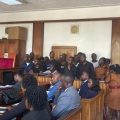 Breaking: Buganda Road Court grants bail to 15 stop EACOP activists after 30 days in prison.
Breaking: Buganda Road Court grants bail to 15 stop EACOP activists after 30 days in prison.
 EACJ’s Appellate Court will hear an appeal on the dismissed Case against EACOP development.
EACJ’s Appellate Court will hear an appeal on the dismissed Case against EACOP development.

Communities Under Siege: New Report Reveals World Bank Failures in Safeguard Compliance and Human Rights Oversight in Tanzania

A decade of displacement: How Uganda’s Oil refinery victims are dying before realizing justice as EACOP secures financial backing to further significant environmental harm.

Carbon Markets Are Not the Solution: The Failed Relaunch of Emission Trading and the Clean Development Mechanism

Govt launches Central Account for Busuulu to protect tenants from evictions

Uganda’s top Lands Ministry official has been arrested and charged with Corruption and Abuse of Office, a significant event that will have far-reaching implications for land governance in the country.

A decade of displacement: How Uganda’s Oil refinery victims are dying before realizing justice as EACOP secures financial backing to further significant environmental harm.

Govt launches Central Account for Busuulu to protect tenants from evictions

Despite harsh repression, opposition to the EACOP pipeline in Uganda remains strong

Innovative Finance from Canada projects positive impact on local communities.
Over 5000 Indigenous Communities evicted in Kiryandongo District
Petition To Land Inquiry Commission Over Human Rights In Kiryandongo District
Invisible victims of Uganda Land Grabs
Resource Center
- LAND GRABS AT GUNPOINT REPORT IN KIRYANDONGO DISTRICT
- RESEARCH BRIEF -TOURISM POTENTIAL OF GREATER MASAKA -MARCH 2025
- The Mouila Declaration of the Informal Alliance against the Expansion of Industrial Monocultures
- FORCED LAND EVICTIONS IN UGANDA TRENDS RIGHTS OF DEFENDERS IMPACT AND CALL FOR ACTION
- 12 KEY DEMANDS FROM CSOS TO WORLD LEADERS AT THE OPENING OF COP16 IN SAUDI ARABIA
- PRESENDIANTIAL DIRECTIVE BANNING ALL LAND EVICTIONS IN UGANDA
- FROM LAND GRABBERS TO CARBON COWBOYS A NEW SCRAMBLE FOR COMMUNITY LANDS TAKES OFF
- African Faith Leaders Demand Reparations From The Gates Foundation.
Legal Framework
READ BY CATEGORY
Newsletter
Trending
-

 MEDIA FOR CHANGE NETWORK2 weeks ago
MEDIA FOR CHANGE NETWORK2 weeks agoA decade of displacement: How Uganda’s Oil refinery victims are dying before realizing justice as EACOP secures financial backing to further significant environmental harm.
-

 MEDIA FOR CHANGE NETWORK2 weeks ago
MEDIA FOR CHANGE NETWORK2 weeks agoGovt launches Central Account for Busuulu to protect tenants from evictions
-

 MEDIA FOR CHANGE NETWORK2 weeks ago
MEDIA FOR CHANGE NETWORK2 weeks agoCarbon Markets Are Not the Solution: The Failed Relaunch of Emission Trading and the Clean Development Mechanism
-

 NGO WORK4 days ago
NGO WORK4 days agoCommunities Under Siege: New Report Reveals World Bank Failures in Safeguard Compliance and Human Rights Oversight in Tanzania

